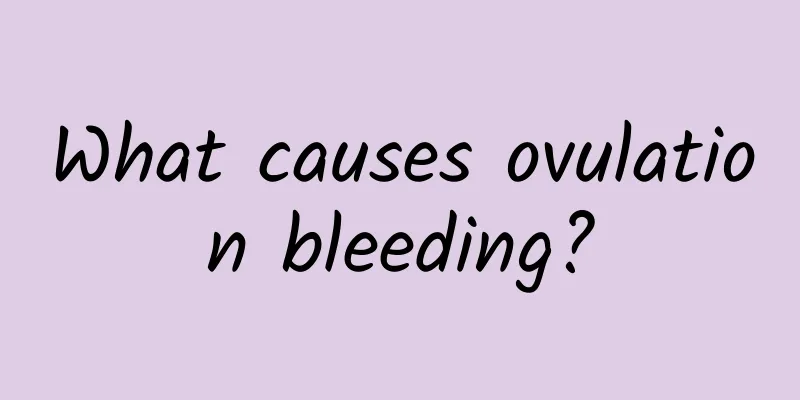What causes ovulation bleeding?

|
Ovulation bleeding refers to the phenomenon of vaginal bleeding caused by the shedding of the endometrium due to fluctuations in hormone levels during ovulation. Ovulation bleeding is usually caused by excessive fluctuations in hormone levels, chronic inflammation of the endometrium, incomplete atrophy of the corpus luteum, insufficient corpus luteum function, reduced secretion of female hormones, uterine fibroids, etc. The specific analysis is as follows: 1. Excessive fluctuations in hormone levels: Estrogen levels drop rapidly after ovulation, causing the endometrium, which is affected by estrogen and undergoes a proliferative reaction, to lose support and cause a small amount of bleeding. 2. Chronic inflammation of the endometrium: The endometrium becomes obviously congested during ovulation, or the blood vessels on the surface of the ovary happen to rupture during ovulation, causing more bleeding than normal and flowing back into the uterine cavity with the peristalsis of the fallopian tube and discharged from the body through the vagina. 3. Incomplete corpus luteum atrophy: When the corpus luteum atrophies, estrogen and progesterone cannot drop rapidly, and the shedding of the endometrium cannot be regular, which leads to bleeding. 4. Insufficient luteal function: If the secretion of progesterone is disordered, it will lead to a deficiency of estrogen and progesterone. At this time, the endometrium cannot be renewed normally, or the endometrium is prone to adverse reactions, which can lead to symptoms of small amounts of bleeding a few days before the menstrual period. This phenomenon will continue until the official onset of menstruation. 5. Decreased secretion of female hormones: During ovulation, a woman's estrogen levels will drop significantly, unable to support the normal growth of the endometrium, so a small amount of bleeding is likely to occur. 6. Uterine fibroids: If a woman has uterine fibroids, during the ovulation period, the high estrogen level will stimulate the growth of the fibroids. The fibroids will stimulate the shedding of the endometrium and cause bleeding. After ovulation, the hormone level drops and the bleeding stops. Ovulation bleeding is a normal physiological phenomenon, but if the amount of bleeding is excessive or accompanied by other discomfort symptoms, you should seek medical attention in time. You should avoid mental stimulation and emotional fluctuations in daily life to prevent bleeding caused by emotional fluctuations. Pay attention to keeping warm and avoid eating raw, cold and irritating foods to avoid aggravating bleeding symptoms. |
<<: What should you pay attention to after abortion?
>>: What is menopausal syndrome?
Recommend
Does polycystic ovary cause short menstrual periods?
Polycystic ovary syndrome (PCOS) may cause short ...
Eat the right protein to lose weight and build a lean body
Weight loss is an undefeated topic, but many peop...
Do I need to take mifepristone tablets for painless abortion?
Abortion generally refers to artificial abortion....
How many mm of uterine fibroids are recommended for surgery?
Uterine fibroids generally require surgery if the...
Patients with irregular menstruation should understand the examination methods in time
Irregular menstruation is a common female disease...
Treat cervical erosion according to symptoms
Cervical erosion is the most common manifestation...
What are the symptoms of pelvic inflammatory disease?
What are the symptoms of pelvic inflammatory dise...
What is the cause of threatened abortion?
A brief analysis of the causes of threatened abor...
What to eat after abortion to help the uterus recover What to eat after abortion to help the uterus recover
Abortion is a common gynecological surgery, and i...
The hotpot party turns into a hotpot block! Eating from head to toe
Are you a "hot pot party"? The end of t...
7 great warming foods! Speed up metabolism and help lose weight
Did you know? To successfully lose weight, in add...
Daily care habits help patients with cervical erosion control their condition
After suffering from cervical erosion, women shou...
One rice dumpling contains over 600 calories! It takes 20 dragon boat trips to exhaust the
During the Dragon Boat Festival, everyone eats ri...
How long after a miscarriage can I take a shower? See what the doctor says
If a miscarriage is not handled in time, it will ...
How to do daily care for cervical erosion
Cervical erosion is a phenomenon of chronic cervi...









